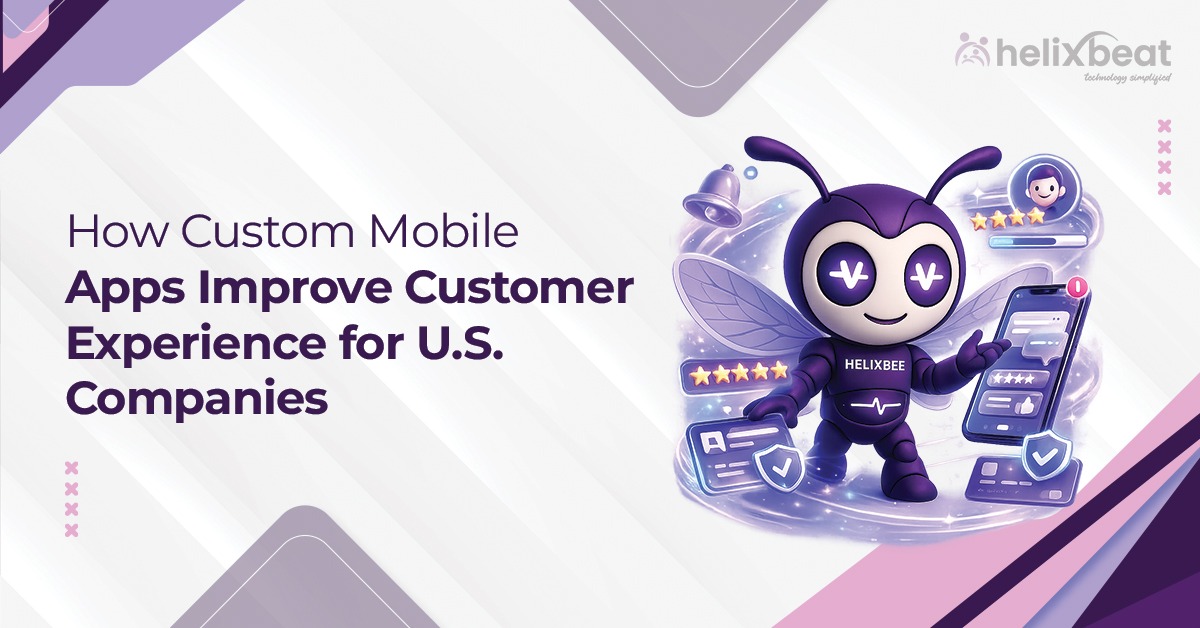B2B payment solutions are transforming the way healthcare providers manage their financial transactions. In an industry where billing, insurance claims, and patient payments are becoming increasingly complex, selecting the right global payment processing system can significantly enhance efficiency. With B2B payment platforms explicitly designed for the healthcare industry, providers can streamline their payment processes, improve cash flow, and enhance the overall patient experience. But how can healthcare providers choose the best B2B payment solution that not only meets their needs but also provides seamless integration with existing systems?
In this blog, we’ll explore the importance of adopting B2B payment solutions in healthcare and the features that make these systems crucial for simplifying payments and billing.

Table of Contents
What is B2B Payment Processing?
B2B payment processing is the system through which businesses, including healthcare providers, manage and process payments between businesses. These transactions often involve payments from various entities, such as insurance companies, third-party payers, and patients. In healthcare, B2B payment processing is crucial for ensuring that providers are reimbursed promptly for services rendered, thereby reducing the financial strain associated with slow or missed payments.
Healthcare transactions can be particularly complex due to the involvement of different payment sources. For example, insurance companies may cover a portion of the payment, while the patient is responsible for co-pays or deductibles. B2B payment solutions allow healthcare organizations to streamline this process by automating payments, ensuring that all parties involved can easily track and reconcile outstanding balances.
Key Aspects of B2B Payment Processing in Healthcare:
- Multi-Source Transactions: Handling payments from insurance companies, government programs (such as Medicare or Medicaid), and direct payments from patients.
- Automation: Automating payment processing helps avoid manual errors, reduces administrative overhead, and ensures that claims are processed promptly.
- Security and Accuracy: Ensuring secure, accurate, and compliant transactions, protecting sensitive patient and payer data, and reducing fraud risks.
Top Features to Look for in B2B Payment Companies for Healthcare
When selecting a B2B payment solution for healthcare, it’s essential to choose a platform that streamlines the payment process, ensures timely reimbursements, and provides flexibility for both patients and providers. Here are the top features to look for in B2B payment companies for healthcare:
- Automated Insurance Verification
Automating insurance verification significantly improves the patient onboarding process by instantly validating insurance details. This feature ensures that insurance coverage, eligibility, and co-pays are confirmed before services are rendered, reducing administrative errors and preventing claim denials. Automated verification saves time, accelerates the billing process, and improves the chances of receiving accurate reimbursements.
- Multipayer Support
Look for payment solutions that support multiple payment systems, which enable healthcare providers to handle transactions from a variety of sources—insurance companies, credit cards, bank transfers, and direct patient payments. This multipayer support ensures flexibility, accommodating a diverse patient base and enhancing the overall patient experience. By offering multiple payment options, providers can cater to the diverse needs of different patients, thereby enhancing payment collections and reducing outstanding balances.
- Automated Claims & Faster Reimbursements
An effective B2B payment gateway should automate claims processing to minimize human error and expedite claim submissions. Automation ensures that claims are accurately processed and submitted promptly, reducing administrative overhead. This leads to faster reimbursements, improving cash flow for healthcare providers. With automated claims handling, providers can focus more on patient care and less on the complexities of managing payment workflows.
- Support for Telehealth & Remote Care Payments
As telemedicine becomes increasingly popular, a comprehensive payment gateway should seamlessly integrate with telehealth platforms, facilitating easy payments for virtual consultations and digital healthcare services. Whether for virtual visits, e-prescriptions, or remote patient monitoring, telehealth payment processing ensures that healthcare providers can efficiently serve patients, regardless of their location. Secure payment options for remote care offer a smooth experience for both providers and patients.
- Patient-Centric Portals
A patient-centric portal is a crucial feature that allows patients to access their payment history, manage balances, make payments, and update their billing preferences directly from a user-friendly interface. These portals empower patients by offering greater control and transparency over their payment experience. By reducing billing confusion and providing easy access to financial information, patient portals enhance patient satisfaction and promote on-time payments.
How B2B Payment Platforms Benefit Healthcare Providers
B2B payment platforms help healthcare providers enhance their overall operations by:
- Reducing administrative workload: Automating payment processes frees up time for healthcare staff to focus on patient care.
- Improving cash flow: Timely, secure payments from insurance companies and patients help maintain a steady stream of revenue.
- Ensuring accurate billing: Integration with EHR and PMS ensures that patient records and payments are always aligned, reducing billing errors and claim denials.
Healthcare Payment Companies: The Key Players in the Industry
With the growing need for streamlined payment processing systems, these companies offer innovative solutions to simplify financial workflows, reduce administrative burdens, and ensure timely reimbursements. Here are some of the top players in the healthcare payment space:
| Companies | Key Features |
| PAYNOVA | Offers low transaction fees, mobile payment options, and seamless integration with patient management systems for enhanced efficiency. |
| Greenphire | Specializes in financial lifecycle management for clinical trials, offering flexible payment solutions tailored to healthcare needs. |
| PayZen | Provides a unique approach to patient financing, offering no-interest payment plans and financial assistance for medical expenses. |
| CareCloud | Offers a comprehensive suite of services including medical billing, EHR integration, and revenue cycle management to streamline payments. |
The Importance of Security and Compliance in Healthcare Payments
A secure payment solution not only prevents data breaches but also ensures smooth financial transactions between healthcare providers and patients. It establishes a trustworthy environment where patients feel confident that their personal and financial information is safe. By selecting a payment platform that complies with HIPAA and PCI-DSS, healthcare providers can prevent costly security breaches, improve operational efficiency, and cultivate strong patient relationships. Security in Healthcare Payments
Healthcare providers must protect sensitive patients’ financial and medical data from unauthorized access, breaches, and fraud. Payment solutions must ensure that all transactions are encrypted, secure, and protected from potential cyber threats. Without robust security measures, patient information is vulnerable to hackers and data theft, which can lead to financial losses, legal consequences, and damage to the clinic’s reputation.
- Key Security Features:
- End-to-End Encryption: Encrypting patient data ensures that sensitive information is protected at every stage, from the moment a payment is made to its storage in the system.
- Tokenization: Tokenization replaces sensitive payment details with a unique identifier, making it impossible for fraudsters to misuse data.
- Fraud Detection: Advanced algorithms and real-time monitoring enable the detection of fraudulent transactions, thereby minimizing risks.
- Compliance in Healthcare Payments
In addition to security, compliance with industry regulations, such as the Health Insurance Portability and Accountability Act (HIPAA) and the Payment Card Industry Data Security Standard (PCI-DSS), is essential. These standards ensure that healthcare providers adhere to strict guidelines for protecting patient information during payment transactions.
Why Compliance Matters:
- HIPAA Compliance: Ensures that all healthcare organizations handle patient information confidentially and securely, safeguarding it from unauthorized access or disclosure.
- PCI-DSS Compliance: Mandates that all payment transactions adhere to the highest security standards to prevent data breaches and fraudulent activities.
The Bottom Line
The healthcare industry’s payment systems are complex and often plagued by inefficiencies, making it crucial for providers to adopt solutions that streamline the entire process. PAYNOVA by HelixBeat offers a robust solution that streamlines payments, ensures security, and ensures compliance with industry regulations. Whether you’re a small clinic or a large healthcare provider, PAYNOVA’s flexible, low-cost payment processing helps you maximize revenue collection and enhance the patient’s experience.
By integrating PAYNOVA, you’re not just investing in a payment gateway, you’re investing in a solution that improves cash flow, reduces administrative burdens, and ensures a smoother, faster payment cycle. With features like real-time reporting, mobile payments, and secure processing, PAYNOVA positions your healthcare facility for success.
Get Started with PAYNOVA for Seamless Payment Processing Soon
FAQs
- What is B2B payment processing?
B2B payment processing involves managing and accepting payments between businesses, including transactions for services like healthcare, ensuring efficiency and accuracy.
- How does PAYNOVA integrate with EHR systems?
PAYNOVA seamlessly integrates with Electronic Health Records (EHR) systems, allowing for real-time updates of payment data alongside patient medical records.
- What are the security features of PAYNOVA?
PAYNOVA ensures secure transactions through end-to-end encryption, tokenization, and continuous fraud detection to protect sensitive patient payment information.
- How can PAYNOVA help reduce payment processing fees?
With low transaction fees and transparent pricing models, PAYNOVA helps healthcare providers reduce costs while offering efficient and secure payment solutions.
- Is PAYNOVA compliant with HIPAA and PCI-DSS standards?
Yes, PAYNOVA is fully compliant with HIPAA and PCI-DSS standards, ensuring that all patient data and transactions are protected according to industry regulations.
- What are the top benefits of using a B2B payment platform in healthcare?
A B2B payment platform like PAYNOVA helps streamline payment processes, reduce administrative costs, improve cash flow, and enhance patient satisfaction through convenient payment options.
- Does PAYNOVA support multiple payment methods?
Yes, PAYNOVA supports a wide range of payment methods, including credit/debit cards, bank transfers, and mobile payments, providing flexibility for patients.
- Can PAYNOVA handle international payments?
Yes, PAYNOVA supports global payment processing, enabling healthcare providers to accept payments from patients internationally with ease and security.
- How does PAYNOVA improve the patient payment experience?
PAYNOVA enhances the patient experience by offering easy-to-use payment portals, clear itemized billing, and the ability to set up recurring payments.
- What features make PAYNOVA ideal for small healthcare providers?
PAYNOVA is perfect for small healthcare providers due to its low transaction fees, user-friendly interface, and seamless integration with existing healthcare systems.
- Can PAYNOVA be integrated with other payment platforms?
Yes, PAYNOVA supports integration with various third-party payment platforms and healthcare management systems, ensuring smooth operations across multiple systems.
- Is customer support available for PAYNOVA users?
Yes, PAYNOVA provides 24/7 customer support to assist healthcare providers with any payment-related issues, ensuring seamless operations and troubleshooting.














